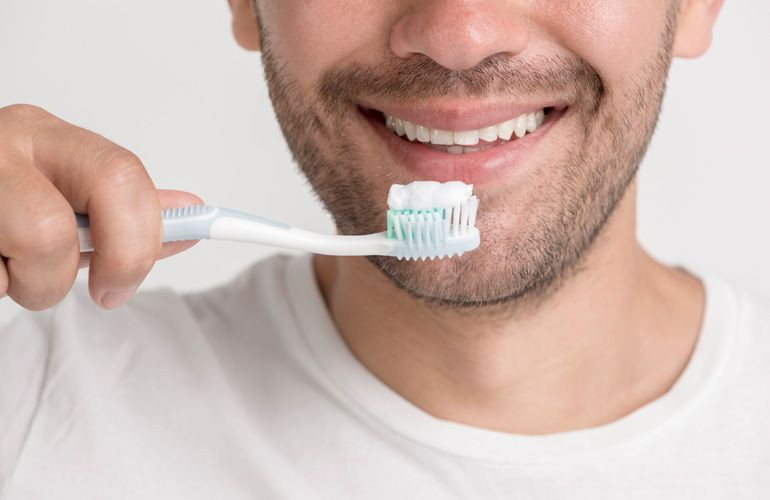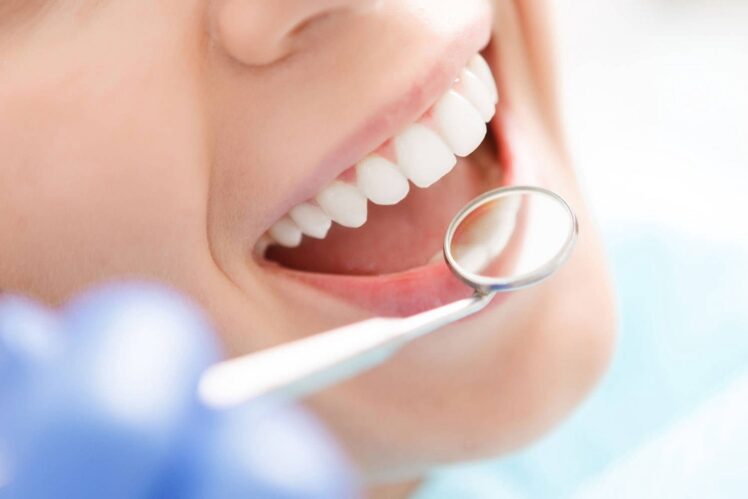In today’s fast-paced world, achieving optimal oral health goes beyond routine brushing and flossing. Nutrition, a crucial but often overlooked component, plays a significant role in maintaining a healthier smile. Let’s delve into the intricate connection between what we consume and the well-being of our oral cavity.
Contents
- The Foundation: Nutrient-Rich Diet for Strong Teeth and Gums
- Calcium: Building Blocks of Dental Strength
- Vitamin D: Enhancing Calcium Absorption
- Omega-3 Fatty Acids: Reducing Inflammation for Healthier Gums
- Probiotics: Allies in Balancing Oral Microbiome
- Zinc: Defender Against Oral Bacteria
- Crunchy Vegetables: Natural Teeth Cleaners
- Balancing pH Levels: Alkalizing Foods for Oral Health
- Tea: A Natural Source of Fluoride
- Healthy Fats: Boosting Absorption of Fat-Soluble Vitamins
- Selenium: A Trace Element for Antioxidant Defense
- Avoiding Acidic Foods and Beverages: Protecting Tooth Enamel
- Phosphorus: Partner in Dental Mineralization
- Fighting Cavities with Antioxidant-Rich Foods
- Maintaining an Alkaline Environment for Oral Harmony
- Beyond the Plate: Lifestyle Choices for Optimal Oral Well-being
- Conclusion: A Holistic Approach to Oral Radiance
The Foundation: Nutrient-Rich Diet for Strong Teeth and Gums

Source: mypicassodental.com
Calcium: Building Blocks of Dental Strength
Calcium, an essential mineral, isn’t just beneficial for bones; it’s a cornerstone for robust teeth. Adequate calcium intake supports the development and maintenance of the enamel, the protective outer layer of the teeth. Incorporate dairy products, leafy greens, and fortified foods into your diet to ensure a steady supply of this vital mineral.
Vitamin D: Enhancing Calcium Absorption
While calcium builds dental strength, vitamin D ensures its effective absorption. Exposure to sunlight and consumption of fatty fish, fortified cereals, and egg yolks are excellent ways to boost your vitamin D levels, promoting the overall health of your teeth and gums.
Omega-3 Fatty Acids: Reducing Inflammation for Healthier Gums
Omega-3 fatty acids, found in fish, flaxseeds, and walnuts, are known for their anti-inflammatory properties. These essential fats can significantly reduce the risk of gum disease by minimizing gum inflammation. Including omega-3-rich foods in your diet contributes to healthier gums, which are essential for maintaining strong teeth.

Source: breathmd.com
Probiotics: Allies in Balancing Oral Microbiome
Probiotics, beneficial bacteria found in yogurt, kefir, and other fermented foods, play a crucial role in balancing the oral microbiome. They help in suppressing the growth of harmful bacteria, reducing the risk of cavities and gum disease. Regular intake of probiotic-rich foods can promote a healthier oral environment.
Zinc: Defender Against Oral Bacteria
Zinc is a vital mineral that plays a key role in fighting harmful bacteria in the mouth. It’s found in foods like meat, cheese, and whole grains. Zinc not only helps in reducing plaque and tartar build-up but also promotes wound healing in the oral cavity. Regular consumption of zinc-rich foods can aid in maintaining a healthy balance of bacteria, reducing the risk of oral infections.
Crunchy Vegetables: Natural Teeth Cleaners
Chewing crunchy vegetables like carrots, celery, and apples can act as natural teeth cleaners. These foods stimulate saliva production, which helps in washing away food particles and bacteria, thereby reducing plaque buildup and maintaining clean, healthy teeth.
Balancing pH Levels: Alkalizing Foods for Oral Health
Consuming alkalizing foods like leafy greens, cucumbers, and avocados helps maintain a neutral pH level in the mouth. An acidic environment promotes tooth decay and enamel erosion, whereas a balanced pH helps in preserving tooth enamel and reducing the risk of cavities. Incorporate alkaline foods into your diet to protect your teeth and gums.
Tea: A Natural Source of Fluoride
Both green and black teas are natural sources of fluoride, an essential mineral for tooth enamel strength. Regular consumption of tea can provide a mild fluoride intake, which helps in the remineralization of teeth and prevention of tooth decay.

Source: oakcliffdentalcenter.com
Healthy Fats: Boosting Absorption of Fat-Soluble Vitamins
Healthy fats found in avocado, olive oil, and nuts are essential for the absorption of fat-soluble vitamins like A, D, E, and K. These vitamins are crucial for oral health, supporting gum health, tooth enamel integrity, and healing processes. Including healthy fats in your diet ensures that your body fully benefits from these vitamins.
Selenium: A Trace Element for Antioxidant Defense
Selenium, a trace element found in Brazil nuts, fish, and whole grains, is known for its antioxidant properties. It helps in combating oxidative stress in the mouth, which can lead to cell damage and inflammation. Regular intake of selenium-rich foods can contribute to a stronger immune response in the oral cavity.
Avoiding Acidic Foods and Beverages: Protecting Tooth Enamel
Acidic foods and beverages, like citrus fruits, soda, and wine, can erode tooth enamel over time. It’s important to consume these in moderation and rinse your mouth with water afterward to neutralize the acids. Protecting your tooth enamel from erosion is key to maintaining a healthy smile.
Phosphorus: Partner in Dental Mineralization
Working in tandem with calcium, phosphorus supports the mineralization process in teeth, reinforcing their structure. Include lean meats, dairy, and nuts in your diet to harness the benefits of this essential mineral.
Fighting Cavities with Antioxidant-Rich Foods

Source: thepointdental.com.au
Vitamin C: Guarding Against Gum Disease
Vitamin C is a powerful antioxidant that aids in the prevention of gum diseases by strengthening the connective tissues and supporting the healing process. Citrus fruits, strawberries, and bell peppers are excellent sources of this vitamin, promoting gum health and reducing the risk of bleeding and inflammation.
Vitamin E: Protecting Oral Tissues
An often underrated player, vitamin E supports oral health by protecting the soft tissues of the mouth. Nuts, seeds, and spinach are rich sources of this vitamin, contributing to the overall well-being of your oral cavity.
Maintaining an Alkaline Environment for Oral Harmony

Source: dentalhousemi.com
Fiber: Nature’s Toothbrush
A diet rich in fiber serves as a natural toothbrush, promoting saliva production and neutralizing harmful acids. Fruits, vegetables, and whole grains are excellent sources of fiber, helping to keep your teeth clean and reducing the risk of cavities.
Water: The Ultimate Hydrator
Staying well-hydrated is not only beneficial for your overall health but also crucial for maintaining oral hygiene. Water helps flush away food particles, bacteria, and acids, preventing plaque buildup and contributing to a fresher breath.
Beyond the Plate: Lifestyle Choices for Optimal Oral Well-being

Source: eatthis.com
Limiting Sugary Intake: Shielding Teeth from Harm
Excessive sugar consumption is a known culprit in tooth decay. By reducing the intake of sugary snacks and beverages, you create a protective shield for your teeth, minimizing the risk of cavities and preserving your radiant smile.
Regular Dental Check-ups: The Key to Early Detection
While a nutritious diet is a fundamental aspect of oral health, regular dental check-ups are equally vital. Professional cleanings and examinations ensure early detection of potential issues, allowing for prompt intervention and maintaining the longevity of your teeth and gums. If you are looking for a good dentist in Seattle, WA, visit Love Your Smile dentistry.
Conclusion: A Holistic Approach to Oral Radiance

Source: medium.com
In conclusion, adopting a holistic approach to oral health involves more than just a toothbrush and toothpaste. A well-balanced, nutrient-rich diet, coupled with mindful lifestyle choices, plays a pivotal role in preserving your radiant smile. Embrace the power of nutrition, make informed choices, and let your oral well-being shine.
